Meet Team DC’s 2022 Student-Athlete Scholarship Awardees
Five of Team DC’s student awardees talk about being out in high school sports and and what the award means to them.

Team DC is holding its annual Night of Champions Awards Dinner on Saturday, April 9, at the Hilton National Mall Hotel, from 6 to 10 p.m. At the event, eight DMV-area student-athletes will each receive a $2,000 scholarship from the organization. The funds are meant to help defray some of the costs of higher education for students who opt to continue participating in competitive or intramural sports.
The evening will also honor community members, including Bill Horten of Adventuring and Kevin Comerford of Rogue Cornhole, both of whom are getting Team DC’s 2022 MVP Award.
Trailblazer Awards are going to Dre Khoury of DC Furies Rugby and Chris Miller of the Capital Tennis Association.
The Dupont Social Club is being honored with the Community Service Award, while the 2022 Clark Ray Horizon Award is going to Robert Rigby of the Fairfax County School System “for his fierce support of LGBTQ students.”
Metro Weekly submitted questions to the eight student-athlete awardees to learn more about their experiences in high school sports, as well as hear their thoughts on the current climate for out athletes and the efforts by the political Right to restrict transgender participation. Five of the students, all area high school seniors, responded by deadline.
Their responses, lightly edited for length and clarity, follow.
How easy or hard was it for you to be out in your high school?
Sophia Bailey, 18, Varsity Cheerleading and Varsity Gymnastics, Lesbian (She/Her/Hers): I got extremely lucky in the fact that I feel it is easier for me to be out in high school. The people I surround myself with on a daily basis have been more than supportive, and have never given me issues surrounding my sexuality. Of course, going to a school as large as mine, there are always exceptions. People will make comments or offer unwanted opinions towards me, but I feel as though I have a good support system in my school and classmates.
Stuart Conrad, 18, Marching Band and Crew, Pansexual (He/They): It got easier as it went along. Public schools have made leaps and bounds in recent years toward LGBTQ+ inclusivity. That, combined with how inherently easier it is to be “out” as you begin to accept yourself more, has made it a relatively inconsequential factor in my life this year.
While it was initially a problem when I first came out in 7th grade (middle school students love to use the “f” slur), most of the issue regarding being a queer youth in high school (in my experience) comes from domestic issues (which were never a problem or me) and internalized homophobia. The ladder gets better with time, which is thankfully true in my case.
Natalie Romero-Marves, 18, Soccer and Field Hockey, Lesbian (She/Her/Hers): It was hard to come out at first. I felt isolated because no one else in my grade was out, but after being out for a while and finding a group of accepting people, I was okay. After a while my school was very accepting.
Susan Shobeiri, 18, Soccer, Queer (She/Her/Hers): It was relatively easy to be out in my high school. We have a good number of out LGBTQ+ students, so I feel mostly supported by the student body. I did face some challenges from some teachers and peers after I cut my hair, but having a core supportive group of friends helped me work through these adversities.
Tori Tracey, 17, Basketball, Bisexual (She/Her/Hers): In high school being open about your sexuality is difficult. I am frequently called homophobic slurs or met with homophobic comments for simply existing.
Do you feel the sports community is welcoming to the LGBTQ+ community?
Sophia: I feel as though the sports community is somewhat welcoming to the LGBTQ+ community. Depending on the sport, or the athlete’s personal orientation, the range of support can vary. Personally, I chose to do a sport that is buried in stereotypes — cheerleading. In some ways, this wasn’t always the most welcoming environment as people made snap-judgements about me before even meeting or speaking to me. But I think that a lot has progressed in the last few years and the sports environment for LGBTQ+ athletes is improving day to day.
Stuart: Depends on the sport. The Marching Band community has been generally very supportive of my orientation, partly because it’s co-ed and a decent portion of those in Marching Band belong to the LGBTQ+ community.
In contrast, Crew — which I did the spring of my eighth grade year, to be fair — wasn’t quite as accepting. However, I imagine that athletic spaces have generally become more accepting since then with the increase in “out and proud” athletes in recent years — particularly people like Carl Nassib and Robbie Rogers — who have helped to shift the culture around certain sports.
Natalie: I never felt isolated on a high school team because of my sexuality, but I can see how others may struggle especially in sports that are seen as hyper-masculine.
Susan: As a goalkeeper in women’s soccer, the sports community around me has been nothing but welcoming to the LGBTQ+ community. I have several openly LGBTQ+ coaches and mentors to look up to, which I am beyond thankful for. I have faced some isolated incidences of prejudice in my sport, but overall I have felt very welcomed.
Tori: Yes, the basketball community is open to the LGBTQ+ [community]. Basketball is the only place where I feel I can be accepted and not judged for my sexuality. I can simply be free and enjoy playing the sport. Frequently teammates are also a part of the LGBTQ+ community, which makes me feel a part of a community.
Do you know any trans athletes? How do you feel about efforts to ban trans athletes from competing?
Sophia: Personally, I do not know many trans athletes. However, trans athletes should be treated with the same amount of respect and dignity as any other competitor.
Stuart: While I don’t personally know any trans athletes, I feel efforts to ban trans athletes from competing are ridiculous. There are ways that they can and should be included in sports that don’t involve just moving them to a separate league.
Natalie: I do not know any trans athletes personally. I feel that trans athletes should be allowed to compete if they meet the regulations. Many of the arguments are rooted in transphobia and the comments are being excused as “protecting” sports.
Susan: I know a couple of trans and non-binary athletes. I firmly believe that efforts to ban trans athletes from competing are incredibly damaging to trans youth. Trans athletes deserve the exact same opportunities to play their sports as anyone else.
Tori: I personally do not know any trans athletes, but I am not in favor of the bans on trans athletes. Everyone should be able to enjoy the sport regardless of their gender.
Have you ever experienced any homophobia in sports? If so, what happened and how did you deal with it?
Sophia: I have definitely experienced homophobia within sports. Though there have been minor incidences in each sport I have done, cheerleading is what mainly comes to mind.
Through cheerleading, there were many times that people made their opinions known to me. Whether it was from my own teammates, opposing teams, or even the football team we cheered for.
In one instance, a teammate felt it was necessary to tell me that the church she belonged to believed homosexuality was a sin, and that I was condemning myself to hell. In another instance, another team laughed uncomfortably during a “bonding” activity during a clinic, as I expressed that I was a lesbian. Despite these incidents, I formed bonds with my teammates and coaches that made the sports I participated in enjoyable as a whole.
Stuart: I’ve experienced a little homophobia here and there, but it’s really just become a minor inconvenience. I can choose whether or not I want to engage with it and, ultimately, the best solution is just to be a better player, marcher, and person than whoever is causing it. Having to deal with homophobia is honestly a superpower since it forces you to become independently focused on your own success and identify and distance yourself from toxic people.
Natalie: I have experienced homophobia in sports with one of my club teams. When I first came out I felt isolated from the rest of my teammates and noticed a change in my relationships with my teammates. I kept to myself [and] stuck with my small group for the rest of the season until I left the team. The atmosphere wasn’t the best and I decided that finding another team was the best option for me. My new team was amazing, and I met some of my closest friends on that team.
Tori: There have been times when people have assumed I was a lesbian because I played basketball when at the time that was not true. For the most part, I have experienced a great time playing basketball without homophobia.
What university are you planning to attend? Will you play sports in college?
Sophia: I am planning on attending Vassar College next year, and hope to be on their women’s rugby team.
Stuart: I’m planning on being a part of the marching band and joining some intramural and club sports at whichever college I attend. I’m currently deciding between two colleges. Regardless of which one I choose, I know they’ll be able to accommodate my athletic wishes in an inclusive way.
Natalie: I will attend Virginia Tech, and I plan to play pick-up and club sports.
Susan: I plan to attend Boston University, where I will be playing varsity soccer and be a part of Kilachand Honors College and the College of Arts and Sciences.
Tori: I will be attending North Carolina A&T. Due to the pandemic, I have only been able to play two games and have not had the chance to be scouted. I plan to try out for [their] basketball team in hopes of earning a scholarship.
What does winning this award mean to you?
Sophia: Winning this award is really special to me, as it showcases aspects of myself that I take deep pride in. It is allowing LGBTQ+ student-athletes to be rewarded for their hard work, while acknowledging and praising their existence. Being a student-athlete is hard enough, and in our case, being a part of the LGBTQ+ community is another aspect of our being that can make things a little harder. This award highlights people who have not only struggled, but pushed through and succeeded, all while being their true, authentic selves.
Conrad: My efforts to help my school’s marching band succeed have been recognized along with any trials and tribulations I faced in my efforts.
Natalie: Winning this award has given me confidence and has shown me to be proud in my accomplishments, whether academically or my character. This award means so much to me and the financial relief has lifted so much stress about furthering my education.
Susan: Winning this award reminds me that I am far from alone. LGBTQ+ athletes will continue to face challenges in our sports and in life, but Team DC reaffirms that there are countless support systems out there available to us.
Tori: Winning this award means the world to me. College is very expensive, and this award will lessen the cost. Also, this is the first time where being a part of the LGBTQ+ community has benefited my life.
Team DC’s Night of Champions Awards Dinner is Saturday, April 9, from 6 to 10 p.m., at the Hilton National Mall Hotel, 480 L’Enfant Plaza SW. Tickets are $125 each and are available for purchase at www.teamdc.org.
Support Metro Weekly’s Journalism
These are challenging times for news organizations. And yet it’s crucial we stay active and provide vital resources and information to both our local readers and the world. So won’t you please take a moment and consider supporting Metro Weekly with a membership? For as little as $5 a month, you can help ensure Metro Weekly magazine and MetroWeekly.com remain free, viable resources as we provide the best, most diverse, culturally-resonant LGBTQ coverage in both the D.C. region and around the world. Memberships come with exclusive perks and discounts, your own personal digital delivery of each week’s magazine (and an archive), access to our Member's Lounge when it launches this fall, and exclusive members-only items like Metro Weekly Membership Mugs and Tote Bags! Check out all our membership levels here and please join us today!




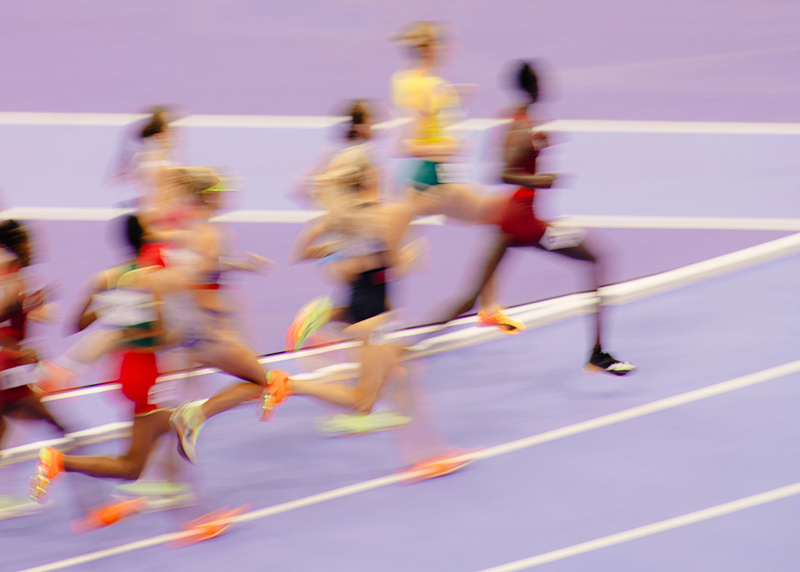
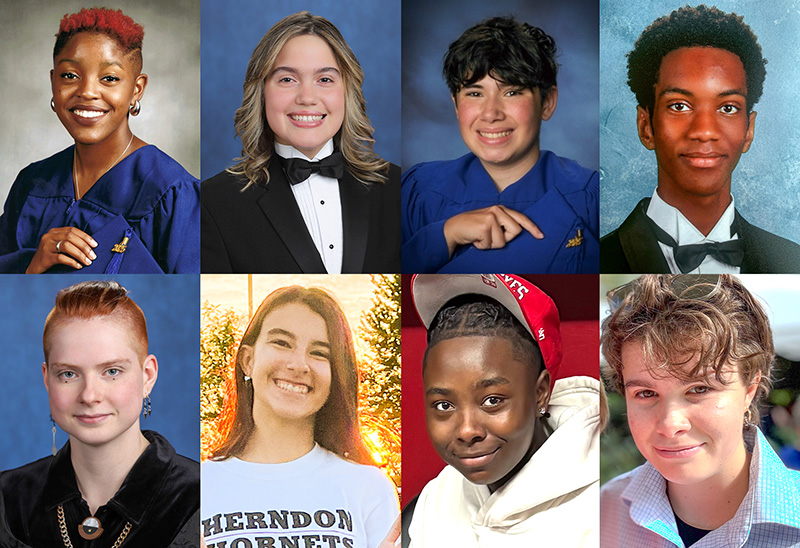
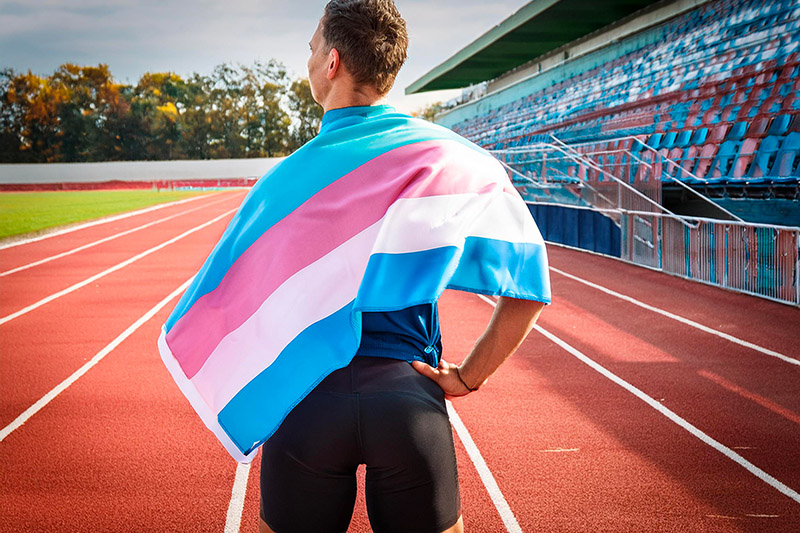
















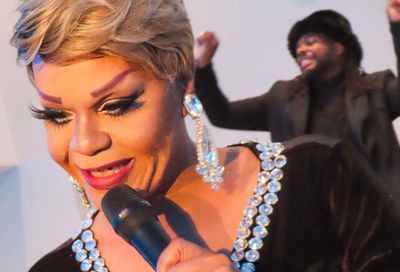
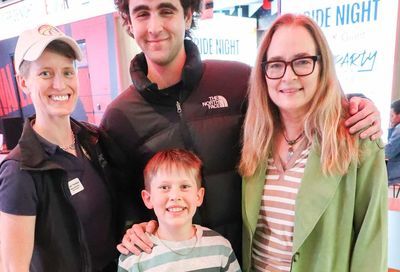
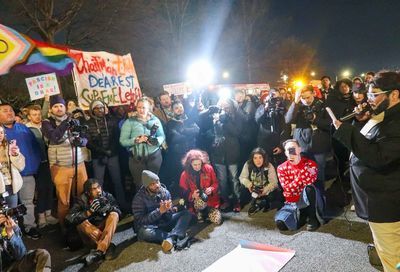
You must be logged in to post a comment.